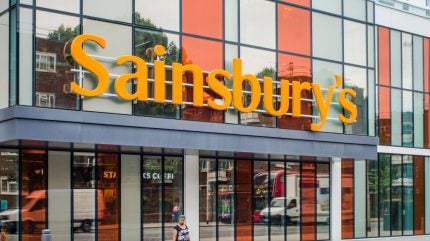
UK-based supermarket Sainsbury’s has reported a solid first quarter (Q1) of 2024 with a 3% rise in its underlying sales.
However, this growth was driven by strong grocery sales, which rose 4.8%, offsetting a decline in the retailer’s non-food categories.
The positive grocery performance reflects Sainsbury’s focus on value and quality.
The retailer has been steadily winning market share for 15 months straight, with customers choosing it for their main weekly shop.
This success is attributed to initiatives such as matching budget supermarket Aldi’s prices on essentials and offering attractive deals through its Nectar loyalty programme.
Earlier this month, Sainsbury’s launched a new initiative to reward customers with Nectar points when they use its ultra-rapid electric vehicle (EV) charging service, Smart Charge.
In doing so, the supermarket reportedly became the first EV charging provider in the UK to integrate a national loyalty scheme with its service.
While grocery sales are a bright spot for the company, non-food and clothing sales fell 4.3%.
This can be partly explained by unseasonal weather conditions in the country that dampened demand for summer items such as paddling pools and garden furniture.
Additionally, Argos, Sainsbury’s subsidiary, saw a 6.2% decline in sales compared to a strong performance last year.
Weaker consumer electronics demand, particularly in gaming, further impacted Argos’ results.
Despite the headwinds in non-food sectors, Sainsbury’s remains optimistic. It expects full-year retail operating profit to grow between 5% and 10%.
This confidence stems from its ongoing cost-saving efforts and investments in technology.
A noteworthy move is its partnership with Microsoft to leverage AI for enhancing customer experiences and improving operational efficiency.
Looking ahead, Sainsbury’s acknowledges the cautious consumer behaviour due to the ongoing cost-of-living crisis. It anticipates this trend to continue until interest rates potentially decrease.
Overall, Sainsbury’s Q1 results paint a mixed picture. While grocery sales are a clear success story, non-food categories face challenges.
The company’s focus on value, innovation, and technology adoption positions it well to navigate the current market environment.



